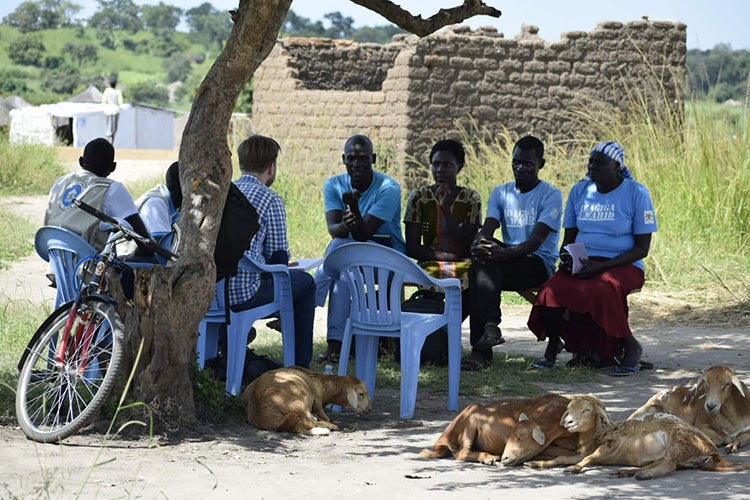By Elizabeth Rogers
A mass atrocity can start with just a few words. It could be a label that divides people into “us” versus “them,” hate speech that fuels persecution, or a rumour about a threat from another group that pushes tensions into violence. We don’t see genocide in the headlines often but it’s still happening and the first signs of the next mass atrocity could already be emerging.
Christopher Tuckwood, a University of Waterloo alumnus, believes that recognizing these early warning signs of genocide and working directly with the people affected can save lives — and emerging technologies could be the connection.
Tuckwood co-founded The Sentinel Project with fellow alumni Taneem Talukdar (BASc ’08) and Kristin Biefer (BA ’08) in 2008 at Waterloo. At the time, people in developing countries were rapidly gaining access to the internet and social media thanks to the adoption of mobile phones. This new technology also made it possible for the Sentinel Project to gather and analyze information, and today they are developing machine learning to monitor trends in hate speech to help identify potential risks.
However, the Sentinel Project was focused on more than just technological solutions. “Our goal was always to operate on the ground and work directly with the people who are affected,” Tuckwood says. “We bring expertise on the technology side but they have the local, on-the-ground experience.”

Arts alumnus Christopher Tuckwood (BA '07) works with local volunteers on the Hagiga Wahid project in Uganda.
Any new initiative starts by working with local people, organizations and sometimes governments to assess risk and gain an understanding of sensitive issues and ethnic conflict as well as the best way to work with certain groups.
The NGO got its start in Kenya, a country with a long history of ethnic rivalry that puts it at a high risk for intercommunal conflict that threatens civilians. After the success of the Una Hakika project, the Sentinel Project expanded its work to other countries including Burma/Myanmar, the Democratic Republic of the Congo, South Sudan and Uganda.
Today, a team of 15 and more than 4,700 volunteer project ambassadors support seven projects in five countries.